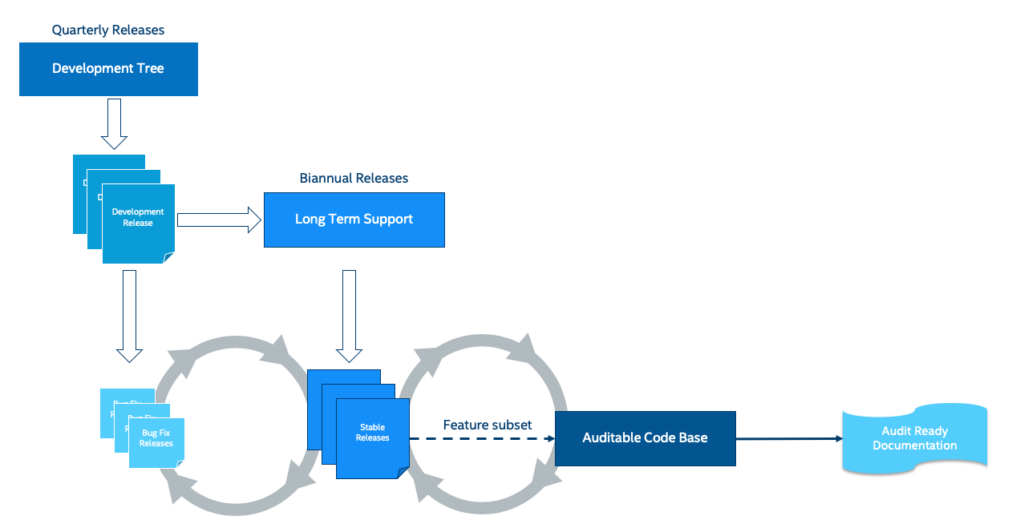Written by Chris Friedt, Zephyr LTS V2 Release Manager
The Zephyr Real-Time Operating System has seen tremendous growth since the v1.14.0 LTS release 2 years ago. We are just a few weeks away from our second LTS release, v2.7.0. Below are some preliminary statistics that should provide some perspective to show just how quickly Zephyr is gaining momentum.
|
v1.14.0 LTS |
v2.7.0 LTS (preview) |
|
|
Contributors |
500 |
1000 |
|
Boards |
160 |
350 |
|
Architectures |
8 |
9 |
|
Commit Velocity |
1.4 [commits / hr] |
2.5 [commits / hr] |
While Zephyr’s development releases are normally stable, the LTS release provides an extended assurance of stability for vendors, product manufacturers, and everyone in our community. The importance of maintaining an LTS release may not be obvious. However, when one considers the velocity of this project, and the thought of hitting that quickly moving target, the need is clear. LTS provides a common reference point for manufacturing and product life-cycles with a clear path for updates.

The Release Process page outlines both the regular development release process as well as additional requirements for the LTS release. There may be absolutely zero high-severity issues, maximally 20 medium-severity issues, and at-most 50 low-severity issues at release time. Prior to release, we have an extended soak period for companies and community members to verify Zephyr’s stability on every supported platform. Post-LTS-release, companies can rest assured there will be security, extended stability, and bug-fixes ported for at least 2 years.

As always, newcomers are encouraged to begin with the Getting Started Guide. For questions or help on a specific topic, please join us at chat.www.zephyrproject.org.
Stay tuned for the next Zephyr LTS release, v2.7.0!